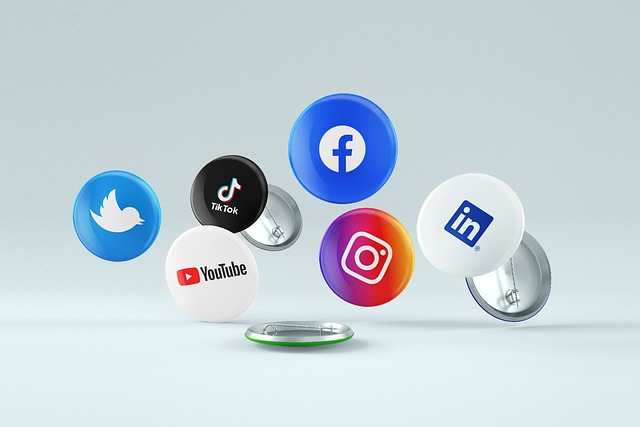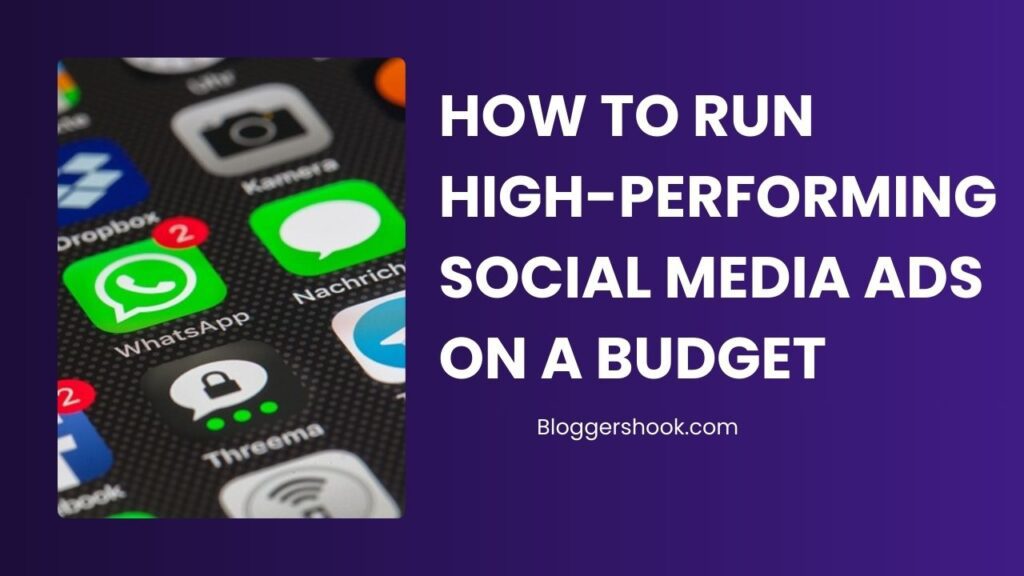Social media continues to evolve rapidly, reshaping how individuals and businesses communicate, market, and engage. By 2025, emerging technologies, shifting user preferences, and global developments are expected to create new dynamics in the social media landscape. Understanding these trends is crucial for staying ahead of the curve. Below, we explore the top social media trends to watch out for in 2025 and how they are expected to influence the digital world.

1. Rise of AI-Driven Content Creation and Personalization
Artificial Intelligence (AI) is poised to become the backbone of social media platforms. By 2025, platforms will rely heavily on AI to offer hyper-personalized experiences, enabling brands to tailor content more effectively to individual users.
Key Developments:
- AI-Generated Content: Tools like ChatGPT, DALL·E, and MidJourney have already demonstrated AI’s ability to generate high-quality text, visuals, and even video. Social media managers will increasingly use AI to create engaging posts, captions, and even ad campaigns.
- Enhanced Personalization: Platforms will leverage user data to curate feeds with unmatched precision. Users can expect recommendations based on interests, location, and past interactions, fostering stronger engagement.
Implications:
- For Users: Social media experiences will feel more intuitive and aligned with personal preferences.
- For Brands: Businesses must integrate AI tools into their workflows to stay competitive, focusing on authentic and relevant messaging.
2. The Expansion of the Metaverse
The concept of the metaverse—a virtual, immersive digital space—is rapidly gaining traction. In 2025, social media will likely serve as a gateway to these interconnected virtual worlds.
Key Developments:
- Virtual Reality (VR) and Augmented Reality (AR): Platforms like Meta invest heavily in VR/AR technologies, allowing users to socialize, shop, and interact in immersive 3D spaces.
- Virtual Influencers and Events: Virtual influencers like Lil Miquela are already blurring the lines between the real and digital worlds. Expect to see more virtual concerts, product launches, and meetups within metaverse environments.
Implications:
- For Users: The metaverse will redefine how people connect, offering more immersive and engaging experiences.
- For Brands: Companies will need to establish a presence in the metaverse, creating branded virtual spaces or hosting events to reach tech-savvy audiences.
3. Decentralized Social Media Platforms
Amid growing concerns over data privacy and censorship, decentralized social media platforms are on the rise. These platforms operate on blockchain technology, giving users more control over their data and interactions.
Key Developments:
- Data Ownership: Unlike traditional platforms, decentralized platforms like Mastodon and Lens Protocol allow users to own their content and data.
- Reduced Censorship: Decentralization can ensure more free speech and reduced influence from corporations or governments.
Implications:
- For Users: Increased autonomy and fewer restrictions on content sharing.
- For Brands: Navigating these platforms may require new strategies, as algorithms and engagement mechanisms will differ from centralized platforms.

4. Short-Form Video Dominance Continues
Short-form video remains one of the most engaging formats on social media, and its popularity shows no signs of waning by 2025.
Key Developments:
- Evolution of Platforms: TikTok’s success has prompted platforms like Instagram Reels, YouTube Shorts, and Snapchat Spotlight to double down on short-form video.
- AI-Enhanced Editing: Advanced tools will make video creation easier, even for amateur users, allowing for professional-grade content.
Implications:
- For Users: Expect even more creative and interactive content, with seamless editing options.
- For Brands: Short videos will be crucial for grabbing attention in crowded feeds, requiring a focus on storytelling within seconds.
5. Social Commerce Takes Center Stage
Social commerce, the integration of shopping features within social media, is projected to become even more significant by 2025. Platforms will blur the line between entertainment and e-commerce.
Key Developments:
- Shoppable Content: Users can shop directly from posts, livestreams, and stories without leaving the app.
- AI Shopping Assistants: AI chatbots integrated into platforms will assist users in finding products, comparing prices, and completing purchases.
Implications:
- For Users: A seamless shopping experience integrated into daily browsing.
- For Brands: Businesses will need to optimize product listings and leverage social commerce tools to drive sales directly from their feeds.
6. Growth of Niche and Community-Based Platforms
While giants like Facebook, Instagram, and Twitter dominate, niche platforms focusing on specific interests or demographics are gaining traction.
Key Developments:
- Interest-Based Communities: Platforms like Discord, Reddit, and BeReal are thriving by catering to focused communities.
- Authenticity Over Virality: Niche platforms prioritize genuine connections over large-scale reach.
Implications:
- For Users: More meaningful interactions with like-minded individuals.
- For Brands: Businesses will need to target smaller, more engaged communities for better ROI.
7. Voice and Audio-Based Platforms Evolve
The rise of podcasts, Clubhouse, and Twitter Spaces has shown the potential of audio-based content. By 2025, voice-driven interactions will become more sophisticated.
Key Developments:
- AI Voice Cloning: Tools will allow users to create personalized voiceovers for posts and videos.
- Interactive Audio Ads: Brands will experiment with voice-activated advertisements.
Implications:
- For Users: A shift towards more conversational and less text-heavy experiences.
- For Brands: Voice-based marketing will become an essential component of campaigns.
8. Sustainability and Ethical Practices Gain Importance
With rising awareness of climate change and ethical issues, users expect brands to demonstrate responsibility. This will influence how companies use social media.
Key Developments:
- Sustainable Campaigns: Social media content will emphasize green practices, carbon neutrality, and social responsibility.
- Transparency: Users will demand proof of ethical claims, driving brands to share behind-the-scenes content.
Implications:
- For Users: More options to support ethical brands.
- For Brands: Companies must align social media strategies with sustainable and ethical values to maintain trust.
9. Increased Regulation and Content Moderation
As social media continues to impact society, governments and platforms will enforce stricter regulations by 2025.
Key Developments:
- AI Moderation: Algorithms will play a larger role in detecting and removing harmful content.
- Transparency in Algorithms: Platforms may be required to disclose how their algorithms operate.
Implications:
- For Users: A safer but possibly more controlled online environment.
- For Brands: Stricter guidelines for advertising and content creation.
10. Evolution of Influencer Marketing
Influencer marketing will remain a cornerstone of social media strategies, but it will evolve significantly by 2025.
Key Developments:
- Nano and Micro-Influencers: Smaller influencers with highly engaged audiences will play a bigger role.
- AI Influencers: Virtual influencers powered by AI will proliferate, offering a cost-effective alternative to traditional influencers.
Implications:
- For Users: More authentic and relatable content.
- For Brands: A need to diversify influencer partnerships and experiment with AI-driven campaigns.
11. Emphasis on Mental Health and Digital Well-Being
As social media usage grows, so do concerns about its impact on mental health. Platforms are expected to introduce features that promote well-being.
Key Developments:
- Time Management Tools: Enhanced features for monitoring and limiting screen time.
- Positive Content Algorithms: Algorithms will prioritize uplifting and educational content.
Implications:
- For Users: Healthier engagement with social media.
- For Brands: A shift towards creating positive, value-driven content.
12. Integration of Wearable Technology with Social Media
By 2025, wearable devices like smartwatches, AR glasses, and fitness trackers will connect seamlessly with social media platforms.
Key Developments:
- Real-Time Sharing: Users can share live updates of activities, fitness stats, or immersive AR experiences directly from wearables.
- Gesture-Based Interaction: Interacting with social media through gestures or voice commands will become common.
Implications:
- For Users: Faster, more interactive sharing options.
- For Brands: New opportunities to connect with audiences through wearable-driven content.
Conclusion
As we move into 2025, the social media landscape will become more dynamic, driven by technological advancements and changing user expectations. From the dominance of short-form videos and the metaverse to ethical marketing and mental well-being, these trends highlight the diverse opportunities and challenges ahead.
For users, these trends promise a richer, more personalized experience. For brands and creators, success will hinge on adapting to these shifts, leveraging emerging technologies, and building authentic connections. Staying ahead in this ever-evolving space will require innovation, agility, and a commitment to understanding audience needs.
Are you ready for the social media revolution of 2025?



Hi Vishwajeet, I was just looking over my latest stats on the blog and noticed ChatGPT and Perplexity were referrers to my blog. X still remains number one even after working Pinterest more in the last month.
I think it will be amazing to see how these trends continue for 2025 as things are changing ever rapidly at super high speed.
You are right, Lisa. Things and technology are changing rapidly especially after AI. It has change the strategies of how we explore and utilize them.
Thanks for stopping by 🙂
Vishwajeet Kumar
The future of social media looks incredibly exciting with AI-driven personalization, the rise of the metaverse, and the growth of social commerce. Short-form videos will continue to dominate, while decentralized platforms offer more control to users. Sustainability and ethical practices are becoming key priorities, making social media a more immersive and responsible space for both users and brands. Exciting changes ahead!